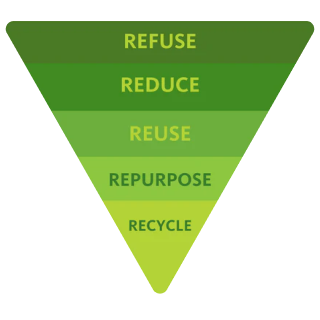Focus
What do we mean by sustainable Do-It-Yourself projects?
DIY (Do-It-Yourself) Projects: DIY projects involve creating, building, or repairing something on your own, without the direct aid of professionals. These projects can range from home improvements and crafts to technology modifications.
Significance:
- Creativity: DIY projects allow individuals to express their creativity and personal style. They provide a platform for experimentation and innovation, leading to unique, customised outcomes.
- Socialisation: Participating in DIY projects can foster social connections. Group projects, community workshops, and online forums unite people, allowing them to share ideas, skills, and experiences.
- Affordability: DIY can be a cost-effective alternative to purchasing new items or hiring professionals. Individuals can save money by using readily available materials and tools and often achieve similar results.
- Environmental Sustainability: DIY projects promote the reuse and recycling of materials, reducing waste and encouraging sustainable practices. This can significantly lower the environmental impact compared to mass-produced goods.
How can we define sustainability?
Sustainability is about making choices today that won’t hurt our grandchildren’s ability to make choices in the future. It’s about balancing making a good living, being fair to everyone, and caring for our environment.
The idea of sustainability became popular with the Brundtland Report in 1987. This report defined sustainability as meeting the needs of the present without compromising the ability of future generations to meet their own needs. It guides us to balance economic prosperity, social fairness, and environmental protection.
Think of sustainability as a way to enjoy life without using up all our resources or damaging the world around us. It encourages us to rethink how we make and use things, aiming for smarter and greener solutions.
Adopting practical approaches becomes essential in the pursuit of sustainability. One such effective method involves implementing strategies that not only reduce our environmental impact but also promote conscious consumption. This brings us to the concept of the 5R strategies. These strategies serve as actionable principles within the broader framework of sustainability, guiding us towards more responsible resource management and waste reduction. Let’s delve into each of these strategies to understand how they can empower us to make tangible contributions to a more sustainable world.
The 5R strategies
One of the most effective approaches to a more sustainable lifestyle is adopting the 5R strategies: Refuse, Reduce, Reuse, Repurpose, and Recycle. These strategies offer practical ways to minimise waste, conserve resources, and lessen our environmental impact.

Refuse: The first step in the 5 R-strategies is to refuse what we don’t need. This means avoiding unnecessary purchases, single-use items, and excessive packaging. By being mindful of what we consume, we can reduce the demand for goods, which contributes to waste and pollution.
Reduce: Next, we aim to reduce our consumption and minimise our ecological footprint. This involves cutting back on non-essential items, conserving resources like water and energy, and simplifying our lifestyles. We can lighten our environmental burden by embracing minimalism and prioritising quality over quantity.
Reuse: Reusing items is a simple yet powerful way to extend their lifespan and reduce waste. Instead of throwing things away after a single use, we can find creative ways to reuse them. This could mean repurposing old jars for storage, using cloth bags instead of disposable ones, or donating gently used items to charity.
Repurpose: Repurposing involves giving new life to old items by transforming them into something else. This could involve upcycling furniture, turning old clothes into rags or quilts, or using leftover materials for DIY projects. By tapping into our creativity and resourcefulness, we can minimise waste and add value to items that might otherwise be discarded.
Recycle: Finally, recycling plays a crucial role in closing the loop and reducing the amount of waste that ends up in landfills. Seniors can participate in recycling programs offered by their communities, separate recyclable materials from their trash, and support businesses that use recycled materials in their products. Recycling responsibly can conserve resources, save energy, and protect the environment for future generations.
Every individual can contribute to sustainability through DIY practices by:
- Reducing waste and pollution by opting for second-hand items, maintaining, sharing, reusing, repairing, and refurbishing products whenever possible. Recycling should be considered only as a last resort.
- Keeping products and materials in circulation for as long as possible by maintaining and reusing them within local communities or by utilising organisations that offer leasing or share services.
- Supporting nature regeneration by prioritising purchases from companies and brands that practice sustainable agriculture methods such as agroecology, conservation agriculture, and agroforestry.
- Above all, embracing a mindset of consuming less. Contrary to societal norms, consuming more does not equate to greater happiness. By consuming less, we reduce waste, conserve resources, and contribute to the long-term sustainability of our planet.
How can seniors actively contribute to sustainability through DIY practices?
Seniors play a crucial role in promoting sustainability through hands-on DIY projects tailored to their interests and abilities. Embracing sustainability in later years involves reimagining consumption patterns and finding innovative ways to minimise waste.
While governments and businesses drive systemic change, seniors have unique opportunities to lead by example within their communities. They can inspire others to adopt sustainable practices by sharing their knowledge and skills.
Whether it’s repurposing household items, gardening, or upcycling furniture, seniors can make a significant impact by embracing DIY projects that reduce waste and promote resourcefulness. Through small, daily actions, they can contribute to a more sustainable future for future generations.
